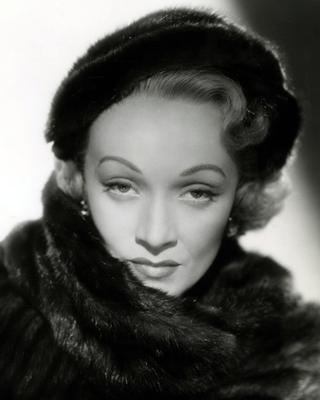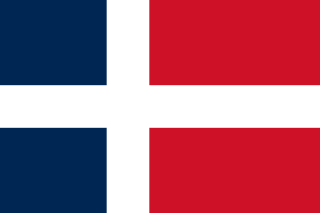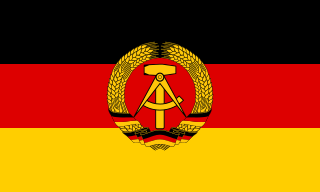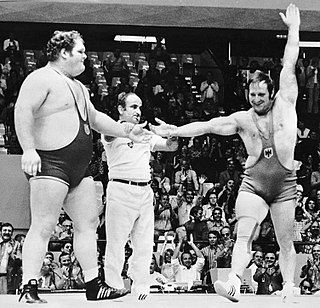
Hans-Dietrich Genscher was a German statesman and a member of the liberal Free Democratic Party (FDP), who served as Federal Minister of the Interior from 1969 to 1974, and as Federal Minister for Foreign Affairs and Vice Chancellor of Germany from 1974 to 1992, making him the longest-serving occupant of either post and the only person to have held one of these positions under two different Chancellors of the Federal Republic of Germany. In 1991 he was chairman of the Organization for Security and Co-operation in Europe (OSCE).

Dietrich Bonhoeffer was a German Lutheran pastor, theologian and anti-Nazi dissident who was a key founding member of the Confessing Church. His writings on Christianity's role in the secular world have become widely influential; his 1937 book The Cost of Discipleship is described as a modern classic. Apart from his theological writings, Bonhoeffer was known for his staunch resistance to the Nazi dictatorship, including vocal opposition to Adolf Hitler's euthanasia program and genocidal persecution of the Jews. He was arrested in April 1943 by the Gestapo and imprisoned at Tegel Prison for 1½ years. Later, he was transferred to Flossenbürg concentration camp.

Marie Magdalene "Marlene" Dietrich was a German-born actress and singer whose career spanned from the 1910s to the 1980s.

Fußball-Club Bayern München e. V., also known as Bayern Munich or FC Bayern, is a German professional sports club based in Munich, Bavaria. It is best known for its professional men's association football team, which plays in the Bundesliga, the top tier of the German football league system. Bayern is the most successful club in German football history, having won a record 33 national titles, including eleven consecutively from 2013 to 2023, and 20 national cups, along with numerous European honours.

Josef "Sepp" Dietrich was a German politician and SS commander during the Nazi era. He joined the Nazi Party in 1928 and was elected to the Reichstag of the Weimar Republic in 1930. Prior to 1929, Dietrich was Adolf Hitler's chauffeur and bodyguard.

Dietrich Fischer-Dieskau was a German lyric baritone and conductor of classical music. One of the most famous Lieder performers of the post-war period, he is best known as a singer of Franz Schubert's Lieder, particularly "Winterreise" of which his recordings with accompanists Gerald Moore and Jörg Demus are still critically acclaimed half a century after their release.
Karl Dietrich Bracher was a German political scientist and historian of the Weimar Republic and Nazi Germany. Born in Stuttgart, Bracher was awarded a Ph.D. in the classics by the University of Tübingen in 1948 and subsequently studied at Harvard University from 1949 to 1950. During World War II, he served in the Wehrmacht and was captured by the Americans while serving in Tunisia in 1943. Bracher taught at the Free University of Berlin from 1950 to 1958 and at the University of Bonn since 1959. In 1951, Bracher married Dorothee Schleicher, the niece of Dietrich Bonhoeffer. They had two children.

The National Olympic Committee (NOC) of the Saarland was founded in the spring of 1950 in the Saar Protectorate, which existed from 1947 to 1956, a region of Western Germany that was occupied in 1945 by France. As a separate team, Saar took part in its sole Olympic Games at the 1952 Summer Olympics before being allowed to rejoin the German team in 1956. Thirty-six competitors, 31 men and five women, took part in 32 events in nine sports.

Athletes from East Germany competed at the 1976 Summer Olympics in Montreal, Quebec, Canada. 267 competitors, 154 men and 113 women, took part in 139 events in 17 sports.

Athletes from East Germany and West Germany competed together as the United Team of Germany for the last time at the 1964 Summer Olympics in Tokyo, Japan. 337 competitors, 275 men and 62 women, took part in 159 events in 19 sports.

Athletes from East Germany and West Germany competed together as the United Team of Germany at the 1960 Summer Olympics in Rome, Italy. 293 competitors, 238 men and 55 women, took part in 148 events in 17 sports.

Germany was represented at the 1956 Summer Olympics by a United Team of Germany of athletes from the Federal Republic of Germany (FRG) and, for the first time at Summer Games, also from East Germany which had not joined in 1952. Also, the Saarland athletes who had to enter as a separate team in 1952 could now join in even though the accession of their state was not yet in effect. Thus, this was the only Olympic team ever to comprise athletes from three German states.

Athletes from West Germany competed at the 1968 Summer Olympics in Mexico City, Mexico. It was the first time that East Germany and West Germany sent separate teams to the Summer Olympic Games. 275 competitors, 232 men and 43 women, took part in 154 events in 17 sports for West Germany. As the country hosted the next Olympics in Munich, the West German flag was raised at the closing ceremony.

Athletes from East Germany competed at the 1968 Summer Olympics in Mexico City, Mexico. 226 competitors, 186 men and 40 women, took part in 124 events in 18 sports. It was the first time that West Germany and East Germany had sent separate teams to the Summer Olympic Games.

The Waldbühne is a theatre at Olympiapark Berlin in Berlin, Germany. It was designed by German architect Werner March in emulation of a Greek theatre and built between 1934 and 1936 as the Dietrich-Eckart-Freilichtbühne, a Nazi Thingplatz, and opened in association with the 1936 Summer Olympics. Since World War II it has been used for a variety of events, including boxing matches, film showings and classical and rock concerts. It seats more than 22,000 people. The venue is located off Friedrich-Friesen-Allee just northeast of Glockenturmstraße.

Wilfried Dietrich was a German heavyweight wrestler. Between 1956 and 1972 he took part in five Olympics and six world championships, often entering both the freestyle and Greco-Roman wrestling contests – a feat unmatched by any other wrestler. He won five Olympic and five world championship medals, becoming an Olympic (1960), World (1961) and European champion (1967). Between 1955 and 1962 he won all his freestyle bouts.

Dietrich von Bern is the name of a character in Germanic heroic legend who originated as a legendary version of the Ostrogothic king Theodoric the Great. The name "Dietrich", meaning "Ruler of the People", is a form of the Germanic name "Theodoric". In the legends, Dietrich is a king ruling from Verona (Bern) who was forced into exile with the Huns under Etzel by his evil uncle Ermenrich. The differences between the known life of Theodoric and the picture of Dietrich in the surviving legends are usually attributed to a long-standing oral tradition that continued into the sixteenth century. Most notably, Theodoric was an invader rather than the rightful king of Italy and was born shortly after the death of Attila and a hundred years after the death of the historical Gothic king Ermanaric. Differences between Dietrich and Theodoric were already noted in the Early Middle Ages and led to a long-standing criticism of the oral tradition as false.

The Woman One Longs For is a 1929 German silent drama film directed by Curtis Bernhardt and starring Marlene Dietrich, Fritz Kortner and Frida Richard. It was based on the novel of the same title by Max Brod, published in Vienna by Paul Zsolnay Verlag in 1927. Made partly at the Babelsberg Studios and the Terra Studios, the film premiered on 29 April 1929 at the Mozartsaal in Berlin. The film's art direction was by Robert Neppach. It is also known by the alternative title The Three Lovers.
Events in the year 1992 in Germany.














